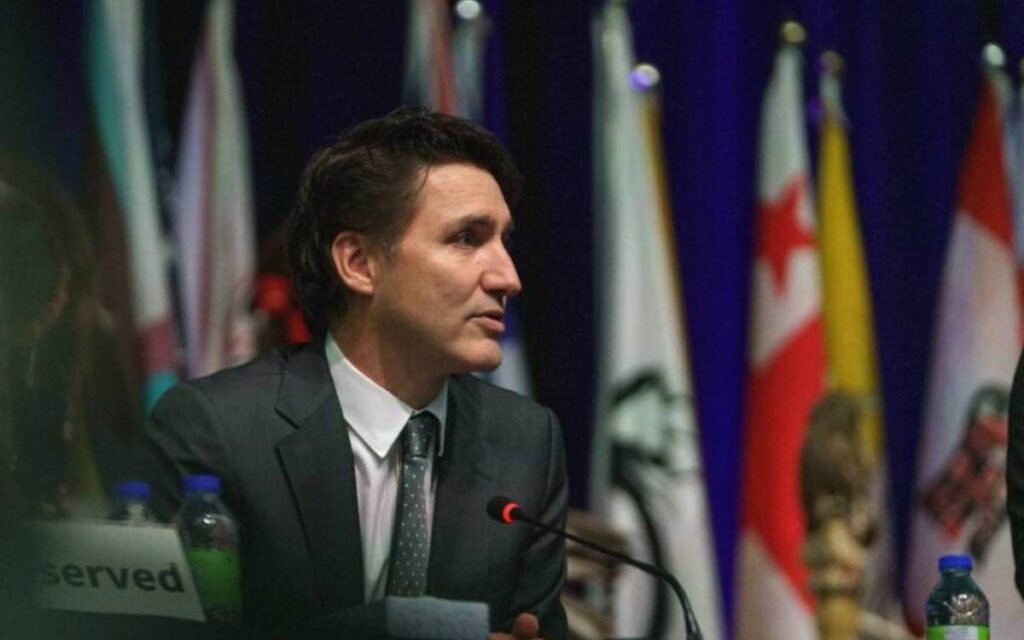
2024 was a year of setbacks for the Trudeau Liberals. Pictured: Prime Minister Justin Trudeau. Photo Credit: Justin Trudeau/X.
As 2024 draws to a close, Canadians are left reflecting on a year defined by political turbulence and significant transitions. From a high-profile cabinet shuffle to growing speculation about Prime Minister Justin Trudeau’s leadership, this year has set the stage for a hectic and busy 2025.
The political calendar began with notable departures from Parliament. In the winter, Liberal MP Carolyn Bennett resigned her seat for Toronto—St. Paul’s. This was followed by Liberal MP David Lametti’s resignation on Feb. 1 for LaSalle—Émard—Verdun, and NDP MP Daniel Blaikie stepping down from Elmwood—Transcona on March 31. These resignations signaled the start of a year filled with political reshuffling and uncertainty.
April brought controversy when Opposition Leader Pierre Poilievre was ejected from the House of Commons on the 30th for referring to Trudeau as a “wacko prime minister” during a heated exchange on British Columbia’s decriminalization of drug use. The unparliamentary language led House Speaker Greg Fergus to remove Poilievre from the chamber, further escalating political tensions.
The year’s by-elections reflected shifting political allegiances. On June 24, Conservative MP Don Stewart won Toronto—St. Paul’s, a significant pickup from the Liberals. September saw NDP MP Leila Dance retain Elmwood—Transcona for her party, while Bloc Québécois MP Louis-Philippe Sauvé flipped LaSalle—Émard—Verdun from the Liberals. Finally, earlier this month, Conservative MP Tamara Jansen reclaimed Cloverdale—Langley City, a notable win for her party.
Additional political drama unfolded when the NDP ended their confidence-and-supply agreement with the Liberals in the fall. Former minister Randy Boissonnault resigned from Cabinet amidst allegations of falsely claiming Cree ancestry but retained his seat as MP for Edmonton Centre. Despite these upheavals, Trudeau’s government survived a third motion of no confidence on Dec. 9, highlighting the precarious balance in Parliament.
December brought further significant changes. Former deputy prime minister and finance minister Chrystia Freeland resigned from Cabinet while remaining an MP, and former housing minister Sean Fraser announced he would not seek re-election.
The shocking news that Freeland, a long-time defender and friend of Trudeau, created shockwaves across Ottawa just hours before she was to deliver the Fall Economic Statement. Despite this hiccup, a new minister of finance was appointed, the statement was tabled and the government lived to see another day.
To help regain control, Trudeau shuffled his cabinet one last time days later. The reshuffle introduced fresh faces like Nathaniel Erskine-Smith, David McGuinty, and Rachel Bendayan, aiming to stabilize the government amidst growing unrest within the Liberal caucus.
As 2025 approaches, the path forward remains fraught with uncertainty. Speculation about a potential prorogation of Parliament looms large. Such a move would provide the government time to regroup and craft a new legislative agenda through a Speech from the Throne. However, with opposition parties united in their intent to topple the government, the likelihood of surviving a confidence vote appears slim.
Trudeau’s future as Liberal leader also hangs in the balance. Over the holidays, he has indicated plans to reflect on his leadership. Should he step aside, the party faces a tight timeline to select a new leader capable of reuniting a fractured caucus and reinvigorating the Liberal base ahead of a potential election.
Newly appointed ministers will also be under intense scrutiny to demonstrate their effectiveness in addressing key issues that matter to Canadians such as housing affordability, an eager Trump administration, and national security. Additionally, the government must address regional discontent, particularly in Alberta and Quebec, where representation and support for the Liberals have waned.
For Trudeau, his cabinet, and the opposition parties, 2025 is shaping up to be a year of political reckoning. Whether it leads to renewal or further instability remains to be seen, but one thing is clear: the stakes for Canada’s future could not be higher.

Daniel Perry is the Director of Federal Affairs at the Council of Canadian Innovators, leading national advocacy and engagement efforts. With experience in consulting and roles at the Senate of Canada, Queen’s Park, and the Canadian Criminal Justice Association, Daniel has helped political leaders and clients across various sectors achieve their public policy goals. A frequent media contributor and seasoned campaigner, Daniel holds a Master of Political Management from Carleton University.






